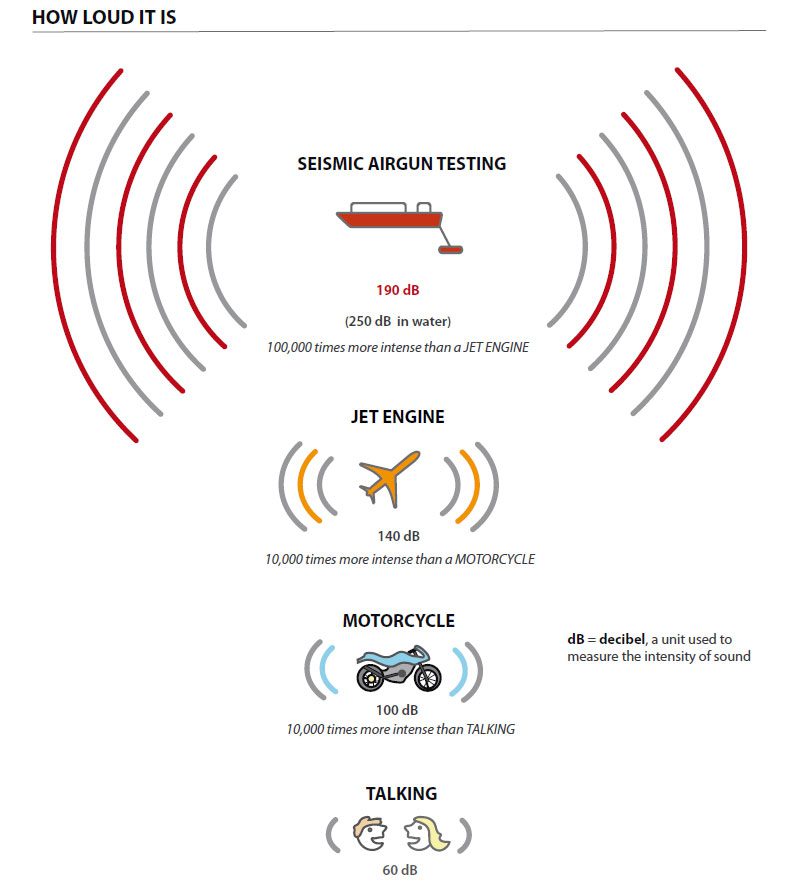Offshore Drilling
 Marine life and ocean ecosystems are threatened by renewed interest in oil drilling in the ocean spurred by a period of high gasoline prices. Expanded offshore drilling increases the risk of oil contamination to wildlife and communities, and contributes to economic losses and climate change. The risks are especially serious in the Arctic, a unique and fragile ecosystem where oil development is already underway and where even a small oil spill could be impossible to clean up.
Marine life and ocean ecosystems are threatened by renewed interest in oil drilling in the ocean spurred by a period of high gasoline prices. Expanded offshore drilling increases the risk of oil contamination to wildlife and communities, and contributes to economic losses and climate change. The risks are especially serious in the Arctic, a unique and fragile ecosystem where oil development is already underway and where even a small oil spill could be impossible to clean up.
The consumption of oil is a major contributor to climate change and ocean acidification, two serious threats to the ocean. In 2006, oil consumption accounted for nearly 45 percent of United States’ carbon dioxide emissions. The planet’s climate crisis will continue to worsen unless we quickly shift to a clean energy economy.
Oceana is working to prevent the expansion of offshore oil drilling.
Seismic airguns
Seismic airguns are used to find oil and gas deep underneath the ocean floor. Airguns are so loud that they disturb, injure or kill marine life, harm commercial fisheries, and disrupt coastal economies. These dynamite-like blasts—which are repeated every ten seconds, 24 hours a day, for days and weeks at a time—are 100,000 times more intense than a jet engine.
Seismic airguns are towed behind ships and shoot loud blasts of compressed air through the water and miles into the seabed, which reflect back information about buried oil and gas deposits. These blasts harm marine mammals, sea turtles, fish and other wildlife.
 Impacts include temporary and permanent hearing loss, abandonment of habitat, disruption of mating and feeding, and even beach strandings and death. For whales and dolphins, which rely on their hearing to find food, communicate, and reproduce, being able to hear is a life or death matter.
Impacts include temporary and permanent hearing loss, abandonment of habitat, disruption of mating and feeding, and even beach strandings and death. For whales and dolphins, which rely on their hearing to find food, communicate, and reproduce, being able to hear is a life or death matter.
Airgun blasts kill fish eggs and larvae and scare away fish from important habitats. Following seismic surveys catch rates of cod and haddock declined by 40 to 80 percent for thousands of miles.
In addition to being devastating for marine life, seismic airguns are the first step toward dangerous and dirty offshore drilling with associated habitat destruction, oil spills and contribution to climate change and ocean acidification.
Oceana is working to halt the use of seismic airguns, and stop the expansion of dangerous offshore drilling.
Spain
Projects to search for offshore hydrocarbons have multiplied in recent years. However, the economic interest in exploiting these resources does not run in parallel with the knowledge of their ecological value, as the studies of environmental impact by oil companies show. All of the reports that Oceana has analysed contain serious deficiencies and in some cases even hide data, although this does not prevent them from being approved by the administrative processes.
In addition, no technology currently exists that is capable of quickly stopping a spill occurring at great depth, as was demonstrated by the accident of the Deepwater Horizon. For this reason, some projects seriously endanger the surrounding areas and resources such as fisheries and tourism.
The domestic production of crude oil accounted for 0.24% of the total consumed in Spain in 2012, which is a long way short of self-sufficiency. Oceana believes that offshore prospecting presents disproportionately high risks when compared to its contribution to energy security and advocates clean energy.
Andalucía
Comentarios de Oceana al Estudio de Impacto Ambiental del Proyecto de Sondeo Exploratorio Siroco
Sondeos de hidrocarburos en la Costa del Sol. Proyecto Siroco
Canarias
Áreas marinas de Canarias afectadas por la exploración petrolífera
Cataluña
Comunidad Valenciana – Islas Baleares
Alegaciones proyecto sísmica 2D en el mar Balear
País Vasco
Comentarios de Oceana al “Sondeo exploratorio Fulmar-1 y Pelícano-1 en el mar Cantábrico”



